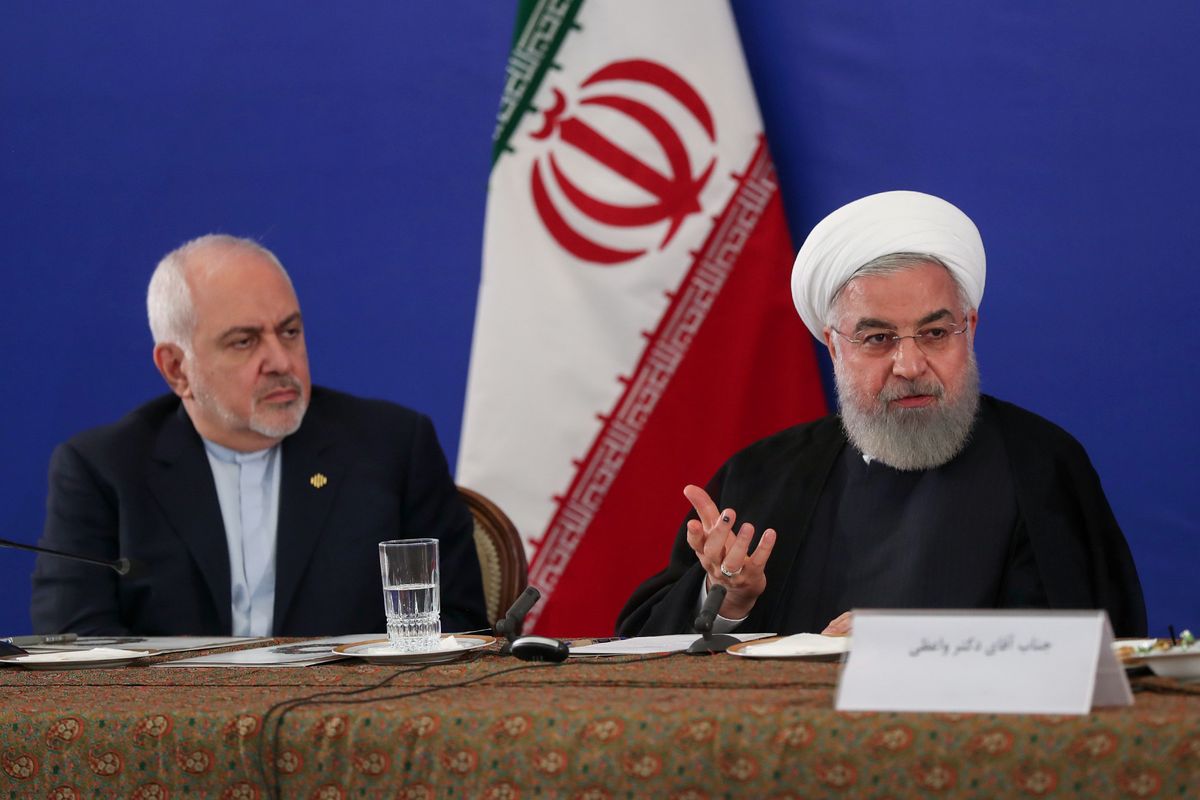Fresh tensions with Israel. Threats to accelerate the pursuit of nuclear weapons. A surprise showing at the G7 last week in France. Iran is in the global limelight again, and the question of whether the 2015 nuclear deal can survive is coming to a head.
Here are three big Iran stories we're following in the coming days:
Iran's nuclear ultimatum put to the test — Ever since the US walked out of the 2015 Iran deal and slapped crippling sanctions on that country, Iran has pressured the Europeans (who are still in the deal) with an ultimatum: unless you provide us with economic help, we'll ditch the deal and pursue nuclear weapons again. This week, Iranian President Hassan Rouhani raised the stakes, warning that Tehran could accelerate its enrichment of uranium to 20 percent fissile purity by Friday unless the Europeans come to the rescue. Twenty percent is a major milestone on the way to reaching weapons-grade enrichment. For perspective, the nuclear deal caps enrichment at just 3.67 percent.
Rising regional tensions — For months, Iran has been at the center of a string of regional flare ups. In response to US sanctions, Iran has allegedly attacked international oil tankers in the Strait of Hormuz, a major oil chokepoint, and has engaged in maritime brinkmanship with the US on the high seas. Elsewhere in the region, Iran has allegedly tried to launch "killer drones" at Israeli targets, while tensions have also soared between Israel and the Iran-backed Lebanese proxy Hezbollah. While Iran does not want a full-blown war with Israel, a tactical miscalculation – or moves by overzealous proxies – could lead to a major escalation of hostilities.
Can the French save the day? — Against this tumultuous backdrop France's President Emmanuel Macron has been trying to salvage the Iranian nuclear deal in order to defuse these tensions. Macron on Tuesday offered the Iranians a $15 billion credit line, a move meant to compensate Tehran's loss of crude oil revenues. Taken together with Macron's G7 diplomacy, the French are trying to send a clear message to Tehran: we are committed to the nuclear deal if you are. But the diplomatic overtures already appear to be falling flat, as Iranian President Rouhani backtracks on a mooted meeting with Trump. And on the financial front, unless the US supports Macron's overture, European banks are unlikely to risk running afoul of US sanctions by issuing fresh credit to Tehran.

















